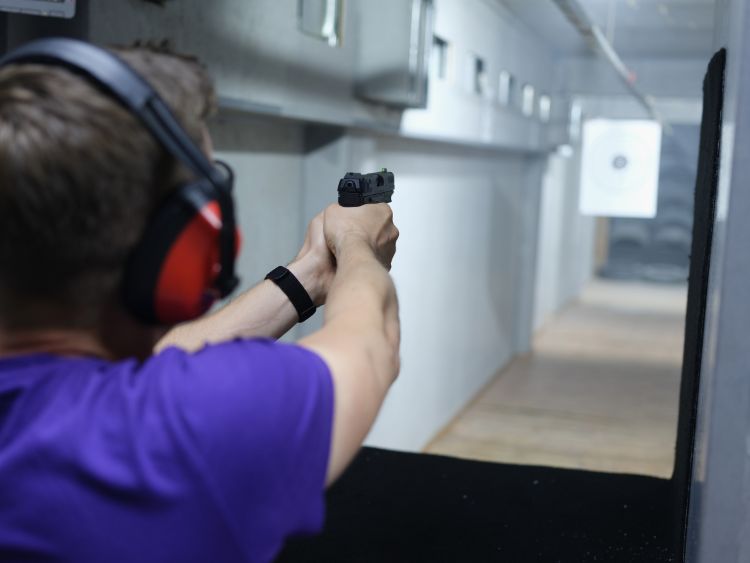The decision to carry a pistol for self-defense is a significant one, requiring careful consideration of various factors to ensure that the firearm you choose is reliable, comfortable, and suitable for your needs. Here, we will discuss the key aspects that consider when selecting the best pistol for everyday carry (EDC).
- Size and Concealability:
The primary purpose of an EDC pistol is to be concealed comfortably and discreetly. Pistols come in various sizes, typically classified as full-size, compact, and subcompact. Full-size pistols offer better grip and higher capacity but can be challenging to conceal, especially for individuals with smaller frames. Compact and subcompact pistols are easier to conceal but may compromise on grip size and magazine capacity. Your body type, clothing style, and the environments you frequent will influence the size of the pistol you can effectively conceal.
- Caliber:
The caliber of a pistol refers to the diameter of the bullet it fires. Common calibers for EDC pistols include .380 ACP, 9mm, .40 S&W, and .45 ACP. The 9mm, as used in the GLOCK G26, is a popular choice due to its balance of recoil, capacity, and stopping power. Higher calibers like .40 S&W and .45 ACP offer more stopping power but with increased recoil, which can affect shot accuracy and follow-up shot speed. The .380 ACP, often used in smaller pistols, is less powerful but can be more manageable in terms of recoil.
- Reliability:
A reliable pistol is non-negotiable for EDC. It must function correctly every time it’s needed, under various conditions. Research the track record of different models and brands. Look for pistols known for their durability and dependability. Reading reviews, consulting with firearms experts, and testing different models at a shooting range can provide valuable insights into a pistol’s reliability.
- Ergonomics and Comfort:
The pistol should feel comfortable in your hand. The grip, angle, and controls (such as the safety, slide release, and magazine release) should be easily accessible and operable. A pistol that feels awkward or uncomfortable can impact your ability to draw, aim, and shoot accurately.
- Capacity:
Magazine capacity is another important factor. More rounds mean more opportunities to stop a threat but also result in a larger, heavier pistol. Balancing capacity with size and comfort is crucial. Some individuals prefer a higher capacity, while others opt for a slimmer, more concealable pistol with fewer rounds.
- Sights and Accessories:
The type of sights on a pistol can affect your accuracy. Options range from basic iron sights to advanced optical sights. Consider whether you’ll be carrying your pistol in low-light conditions, which might necessitate night sights or a flashlight attachment. Additionally, the availability of holsters and other accessories for a specific pistol model should be considered.
- Training and Familiarity:
Regardless of the pistol you choose, training and familiarity with your firearm are paramount. Regular practice at the range and training in self-defense scenarios are essential for effective EDC. The best pistol for you is one that you can operate confidently and accurately under stress.
- Legal Considerations:
Always be aware of the legal implications of carrying a concealed firearm. This includes understanding the laws in your state or any state you plan to visit, as well as obtaining the necessary permits.
In conclusion, selecting the best pistol for everyday carry involves a balance of concealability, caliber, reliability, ergonomics, capacity, and personal preference. It’s a decision that should be made with thorough research and consideration, keeping in mind that the ultimate goal is to have a reliable tool for self-defense that you are trained and comfortable to use.

